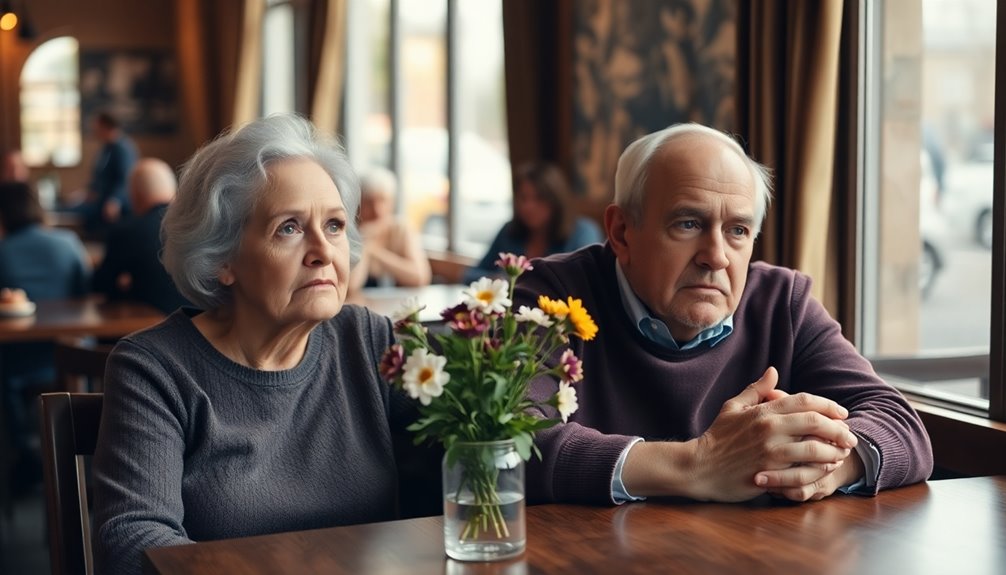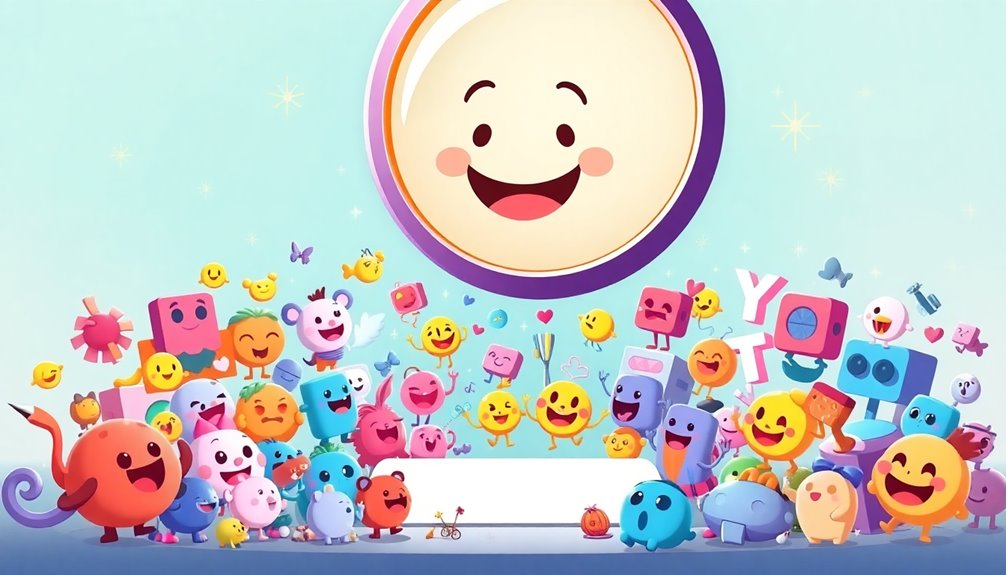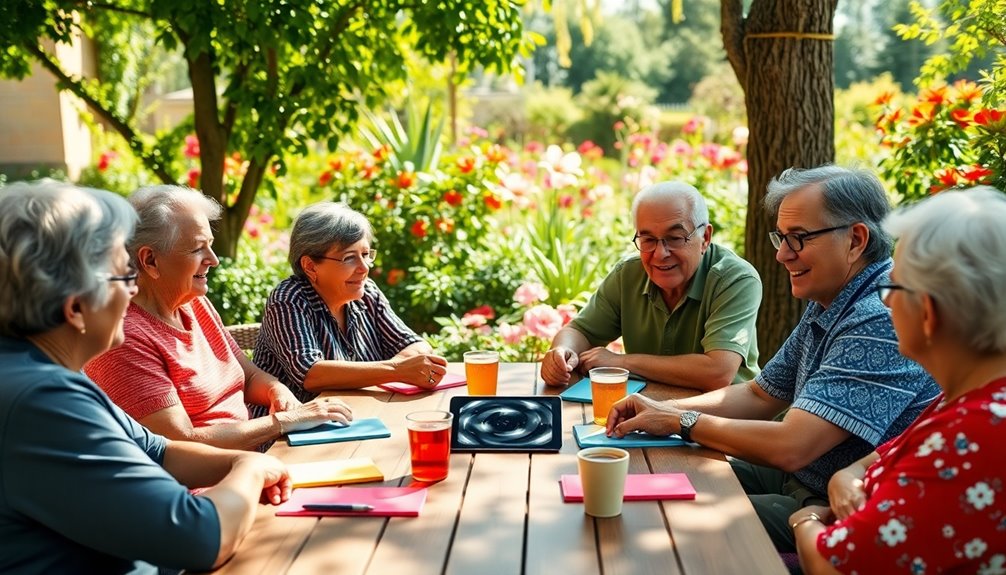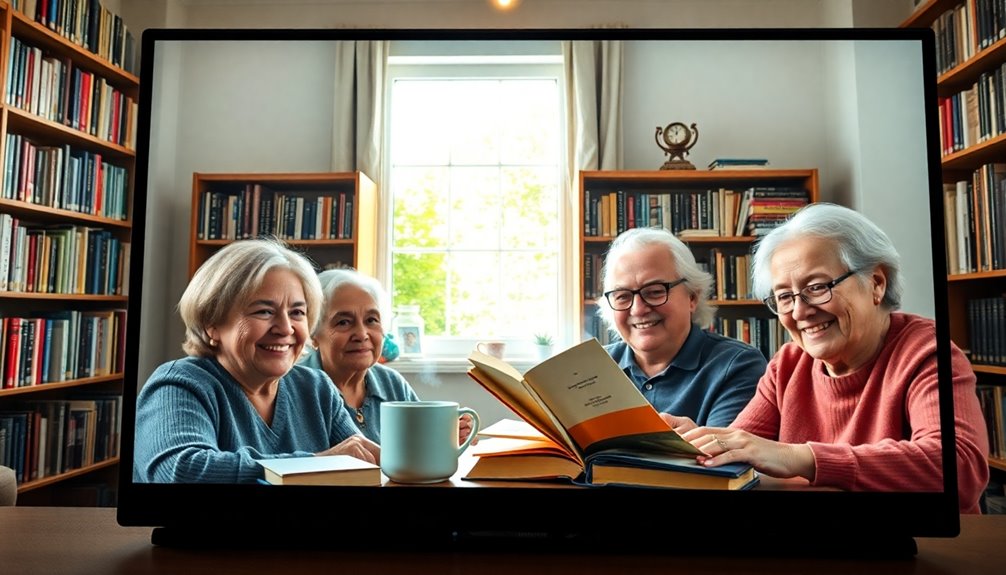Dating a grieving widow can be both rewarding and challenging. You'll need to understand that grief is a complex and non-linear process. Emotions may surface unexpectedly, and your partner might sometimes distance themselves or compare you to their late spouse. Patience is essential. Encourage open communication about feelings and memories, creating a safe space for honesty. Engaging in shared activities can help build emotional intimacy, too. Remember, it's important to honor her past while nurturing your relationship. There are many insights and tips available that can help you navigate this journey together.
Key Takeaways
- Understand that grief is a non-linear process; emotional triggers can arise unexpectedly, impacting your relationship.
- Communicate openly about feelings and memories, fostering trust and emotional intimacy while respecting her grieving process.
- Be patient and sensitive when navigating her past; comparisons to her deceased spouse may create feelings of inadequacy.
- Encourage shared experiences and activities that promote bonding, such as puppy training classes or reading about grief together.
- Seek support resources like grief counseling or online forums to enhance understanding and cope with complex emotions together.
Understanding Grief's Impact
Grief often lingers long after a loved one has passed, and its impact on relationships can be profound. You might notice that your partner's emotional landscape is complex and ever-changing.
Grieving isn't linear; it can resurface unexpectedly, causing emotional distance that might feel confusing. While you may form a strong bond, it's essential to recognize that grief can coexist with new love.
Patience is key; both of you need time to navigate these feelings together. Encourage open communication about emotions, and be prepared for moments of sadness.
Understanding that your partner's heart still holds space for their deceased spouse can help you both create a supportive environment that fosters healing and connection.
Navigating Dating Challenges

Dating someone who's grieving can bring unique challenges that require understanding and sensitivity. You may find yourself maneuvering emotional triggers tied to memories, places, or items that remind your partner of their late spouse.
It's important to be patient as they may have moments of emotional distance or sadness that catch you off guard. Comparisons to the deceased can lead to feelings of inadequacy, so be mindful of your words.
Additionally, the presence of mementos might affect your relationship dynamics, so approach these topics delicately. Avoid planning surprises that could evoke painful memories.
Effective Communication Strategies

Effective communication is essential when maneuvering the complexities of a relationship with a grieving partner. Start by discussing emotional needs during happy moments to build trust.
Use open-ended questions to encourage your partner to share their feelings, allowing you to better understand their grief. It’s important to provide space during their moments of sadness, showing respect for their emotional process. Additionally, be patient and attentive, as this process can take time and may require multiple conversations. Encourage your partner to express their thoughts about various aspects of their grief, including memories and unresolved feelings. Sometimes, discussions can pivot to topics like relationships and boundaries, such as when to end a friends with benefits arrangement, which may arise as they navigate their emotional landscape. By fostering an open and understanding environment, you can help your partner feel safe in their vulnerability.
Encourage them to share memories of their late spouse, as this can strengthen your bond. Finally, consider reading resources on grief together; this can enhance your empathy and understanding.
Insights From Others' Experiences

Steering a relationship with a grieving partner can be enriched by the experiences of others who've faced similar challenges. Many have learned that embracing the past can foster connection. Here's a glimpse into what they've found helpful:
| Experience | Insight |
|---|---|
| Open Discussions | Talking about the deceased can strengthen bonds. |
| Shared Memories | Reminiscing together creates emotional intimacy. |
| Mutual Acceptance | Acknowledging each other's past fosters growth. |
These insights highlight that managing a relationship with a grieving partner requires patience, understanding, and open communication. By embracing these experiences, you can create a supportive environment that honors both the past and your present together.
Resources for Additional Support

Finding the right support can make a significant difference when guiding a relationship with a grieving partner.
Consider exploring resources like "Sex After Grief: Charting Your Sexuality After Losing Your Beloved," which offers valuable insights. Joan Price's work on senior relationships and sexuality can also provide helpful guidance.
Grief counseling is another option; it can assist both you and your partner in processing complex emotions. Additionally, online forums and support groups can foster a sense of community, connecting you with others who understand the challenges of dating a grieving person. Engaging in puppy training classes together can also provide a supportive activity that encourages bonding and shared experiences.
Frequently Asked Questions
How Can I Support My Partner Without Overwhelming Them?
To support your partner without overwhelming them, listen actively and encourage open communication. Respect their need for space during tough moments, and share memories together. Show patience; it'll help build a stronger bond over time.
What Signs Indicate My Partner Is Still Grieving?
Grief can linger like a shadow, subtly shaping your partner's emotions. Look for signs such as withdrawal, sudden sadness, or frequent reminiscing. Understanding these cues helps you support them through their ongoing healing process.
Is It Normal to Feel Jealous of a Deceased Spouse?
It's completely normal to feel jealous of a deceased spouse. Acknowledge those feelings without judgment. Communicating openly with your partner about your emotions can help strengthen your relationship and foster understanding between you both.
How Can We Celebrate Holidays Without Triggering Sadness?
You can celebrate holidays by creating new traditions together, honoring memories with shared stories, and focusing on joy. Encourage open conversations about feelings, allowing space for sadness while embracing the happiness of the moment.
When Is the Right Time to Discuss Future Plans Together?
Imagine planting a seed; you wouldn't rush the bloom. Likewise, wait for the right moment to discuss future plans. Let your connection grow naturally, ensuring both of you feel ready to embrace what lies ahead.
Conclusion
In your journey with a grieving widow, remember that love can bloom amidst sorrow. Just as spring flowers often grow in the remnants of winter, your connection can thrive even in the shadows of grief. Embrace each moment, share stories, and allow healing to intertwine with new memories. By fostering understanding and compassion, you create a space where joy and remembrance coexist, reminding you both that life can still hold beauty, even after loss.









